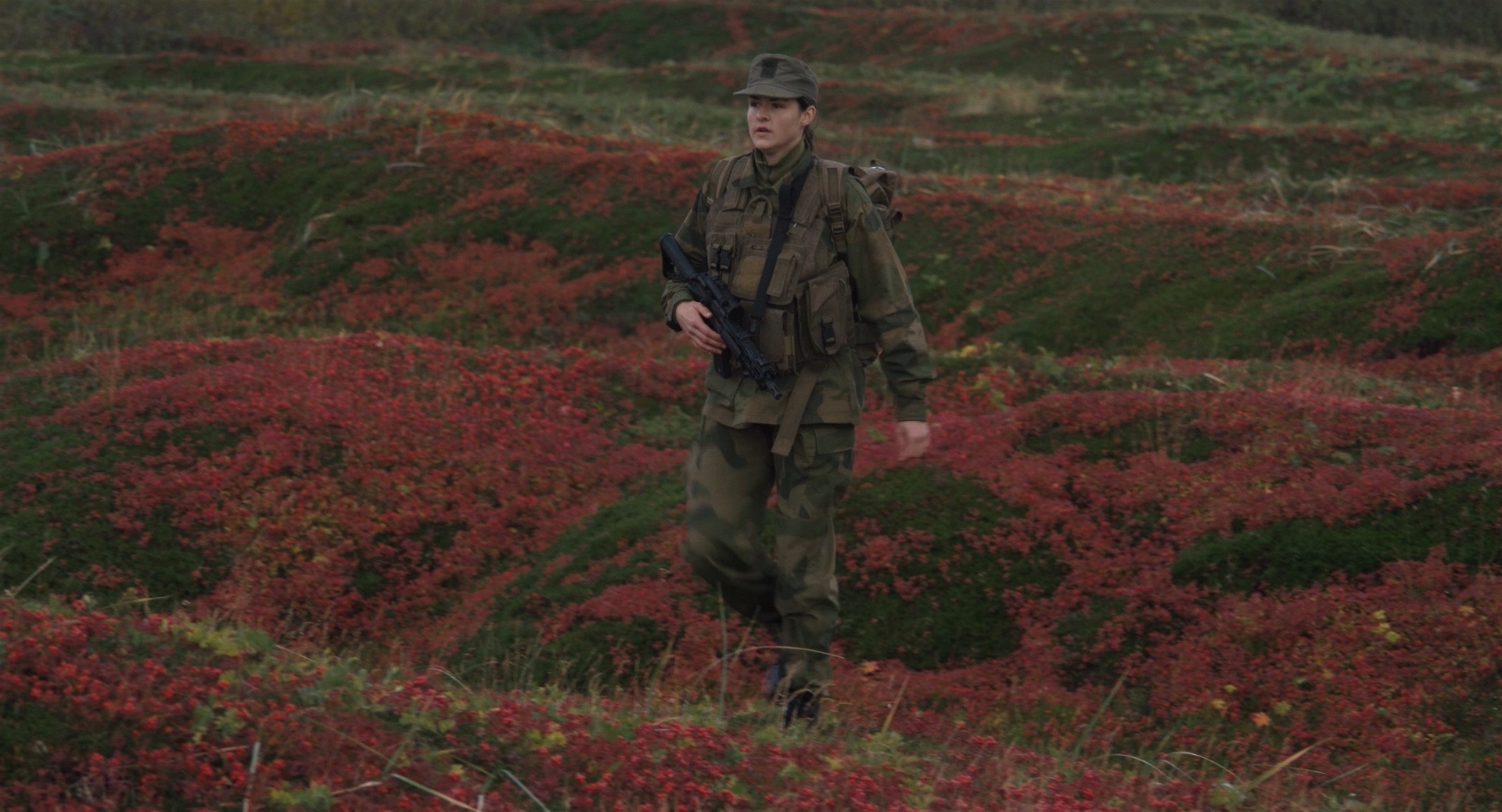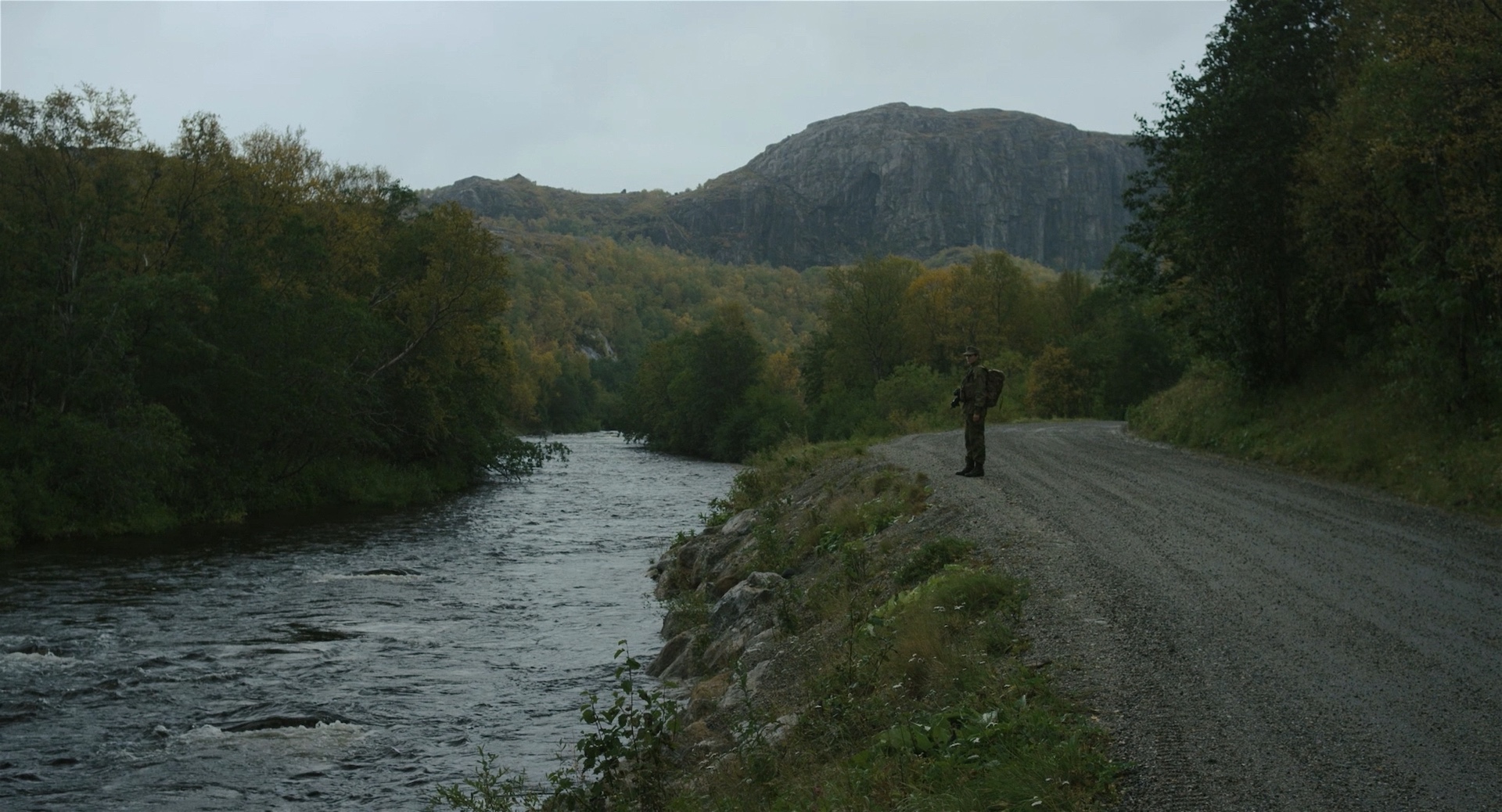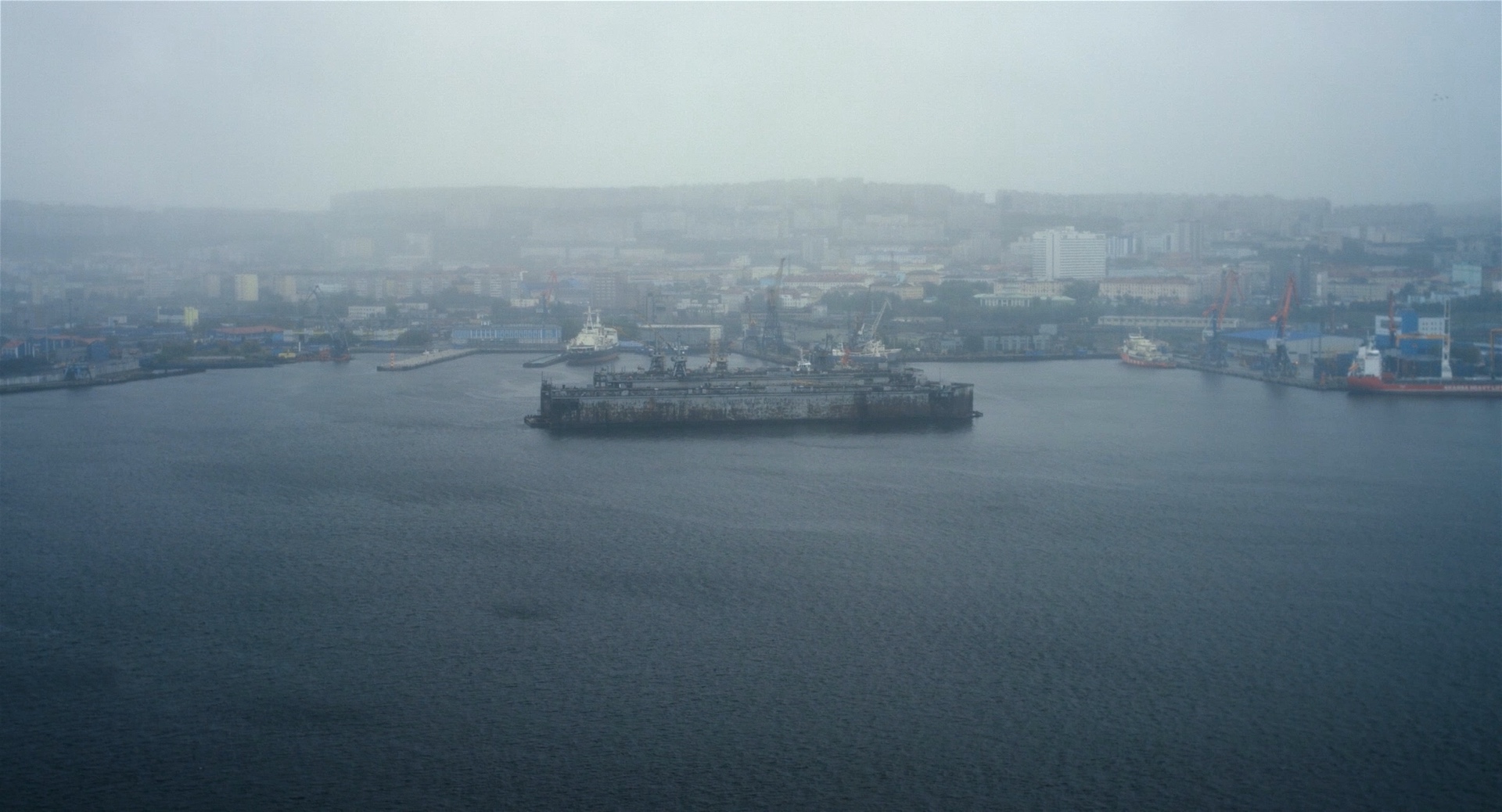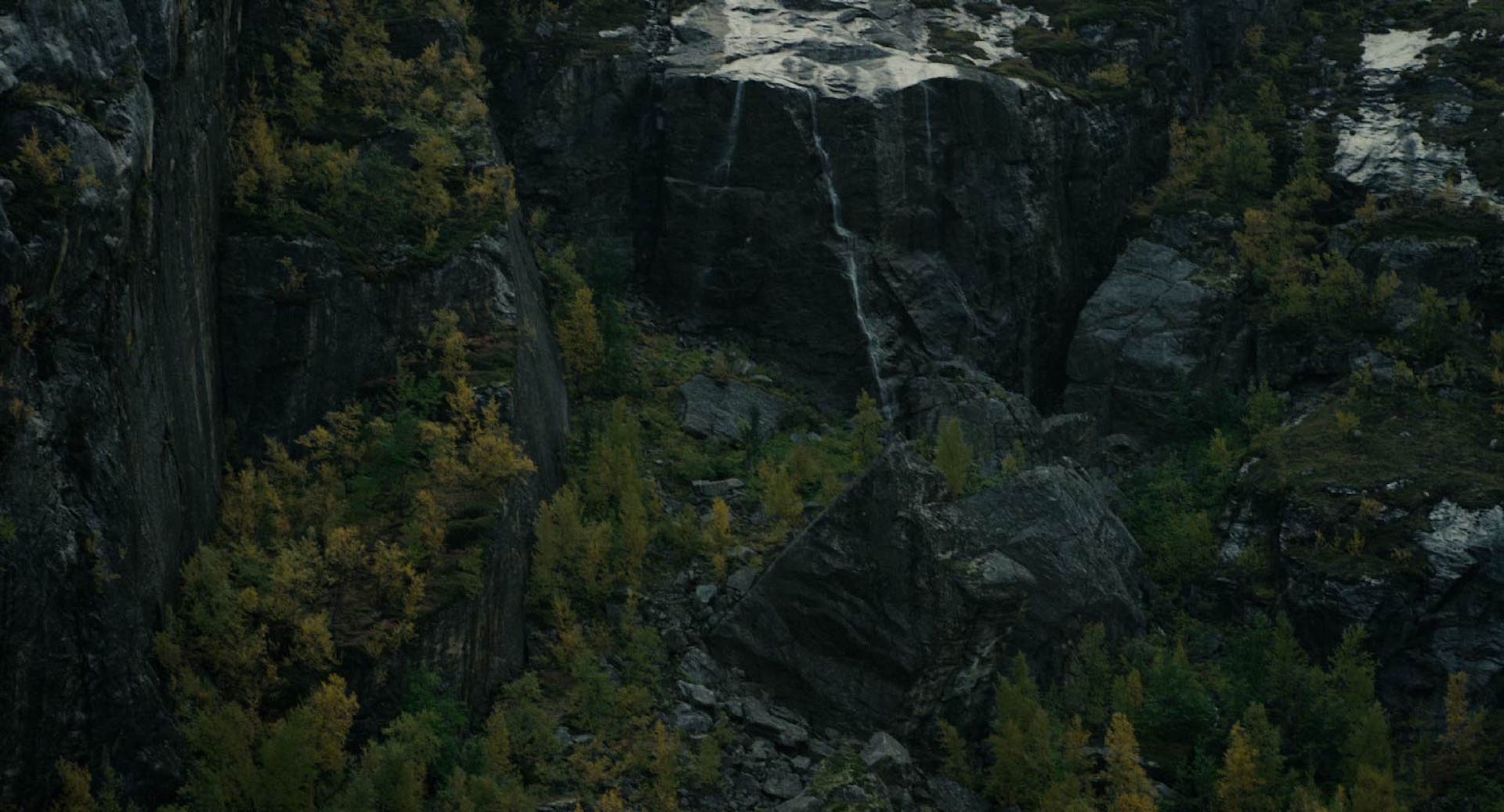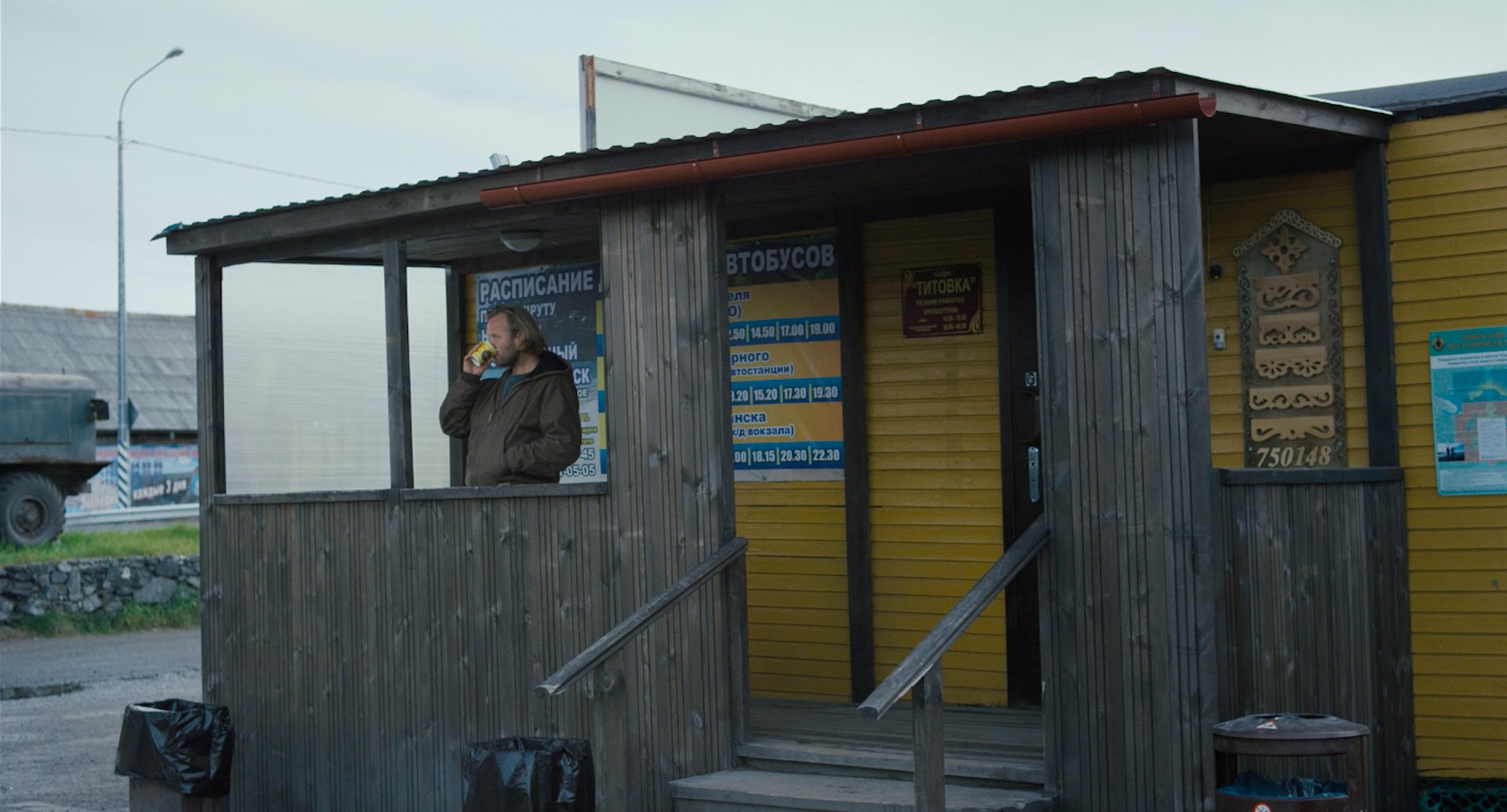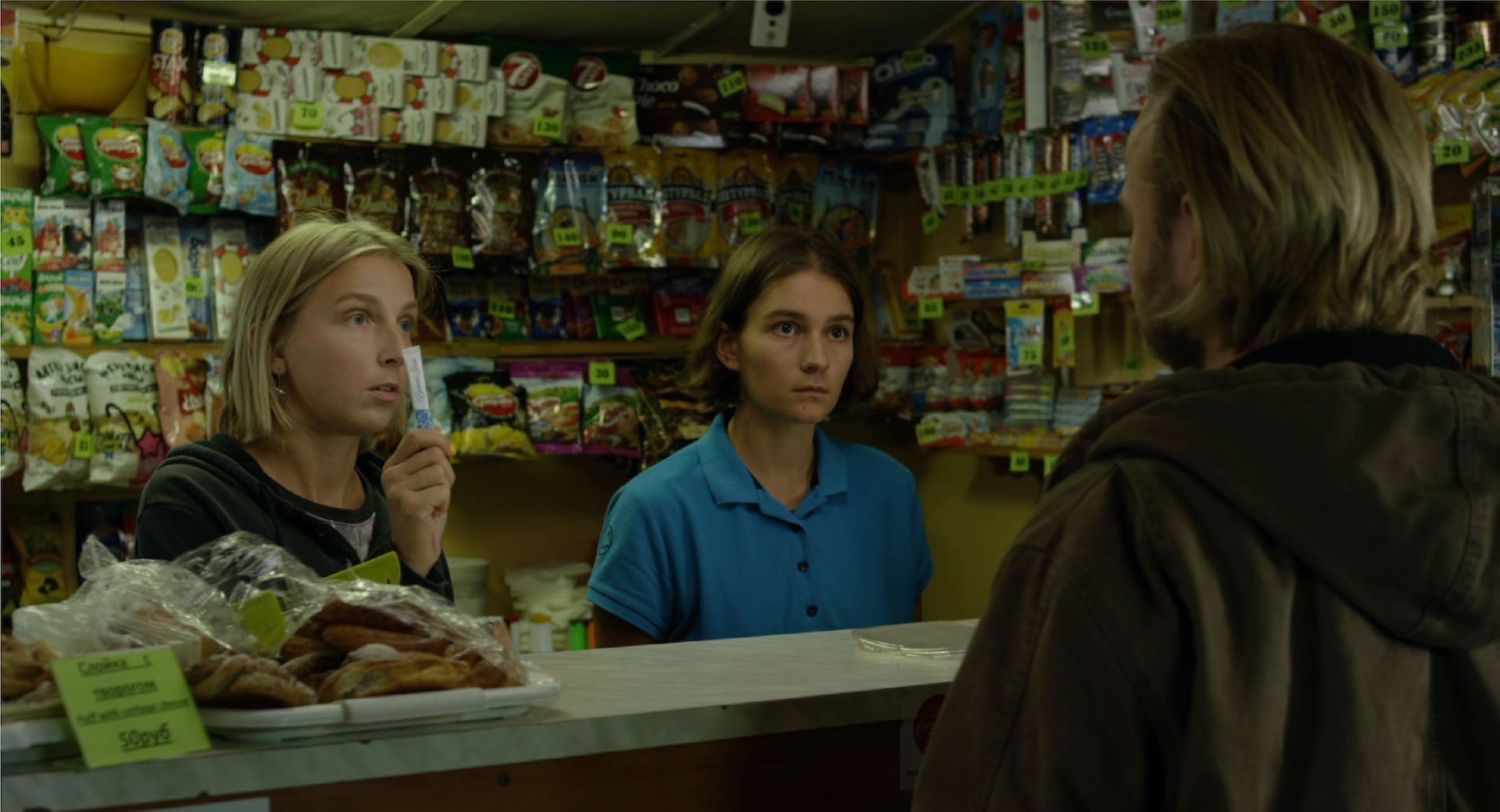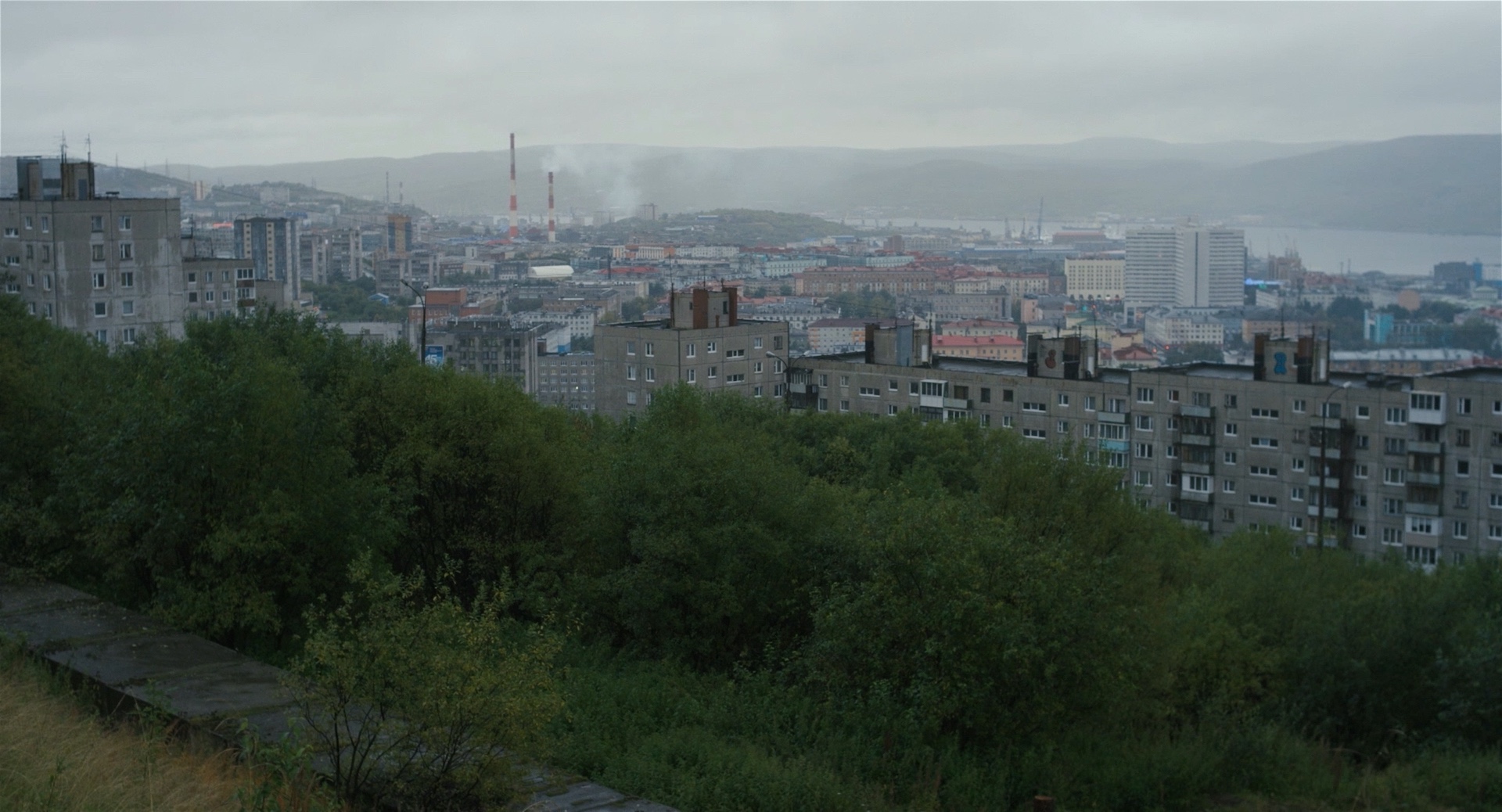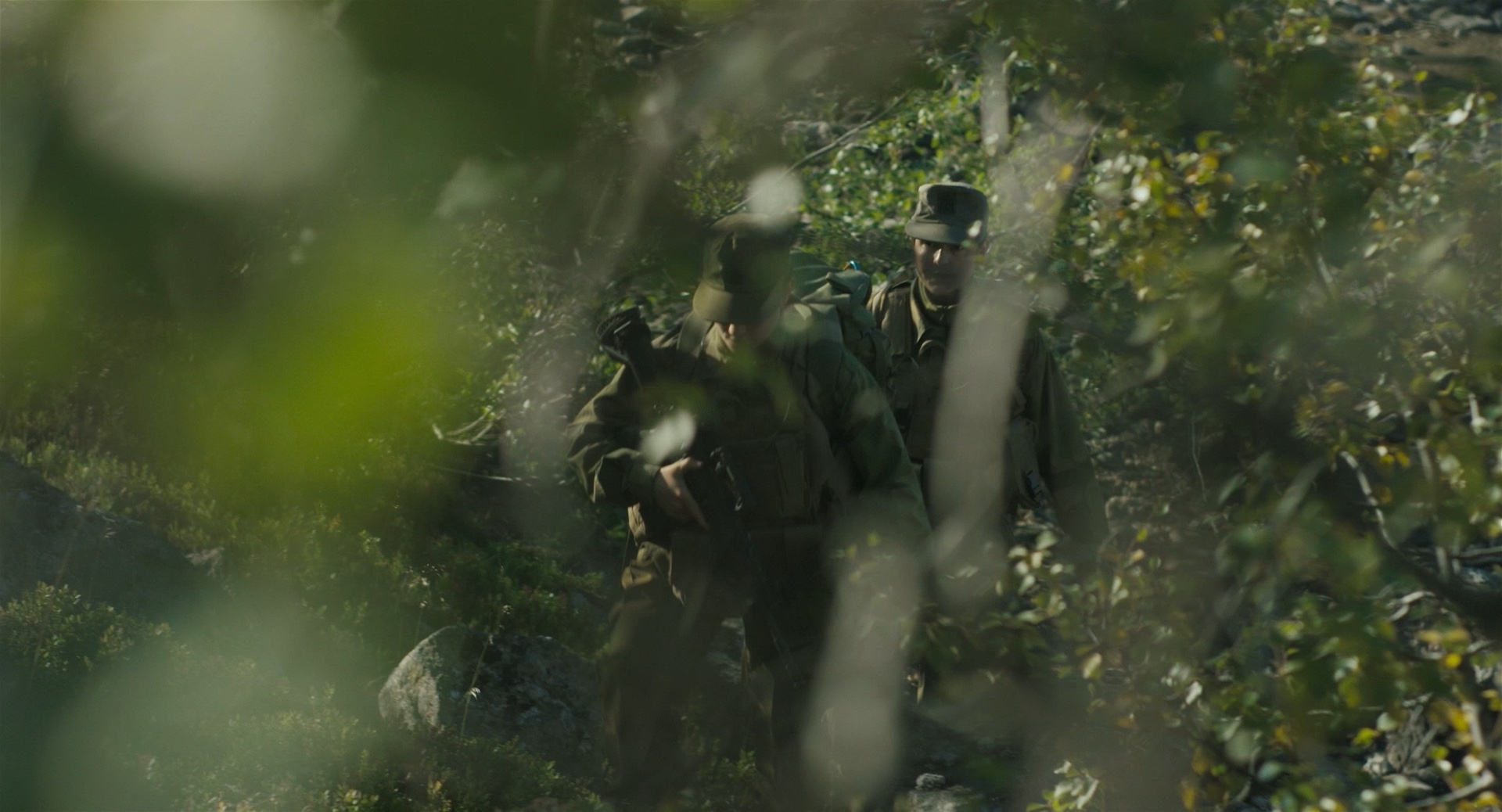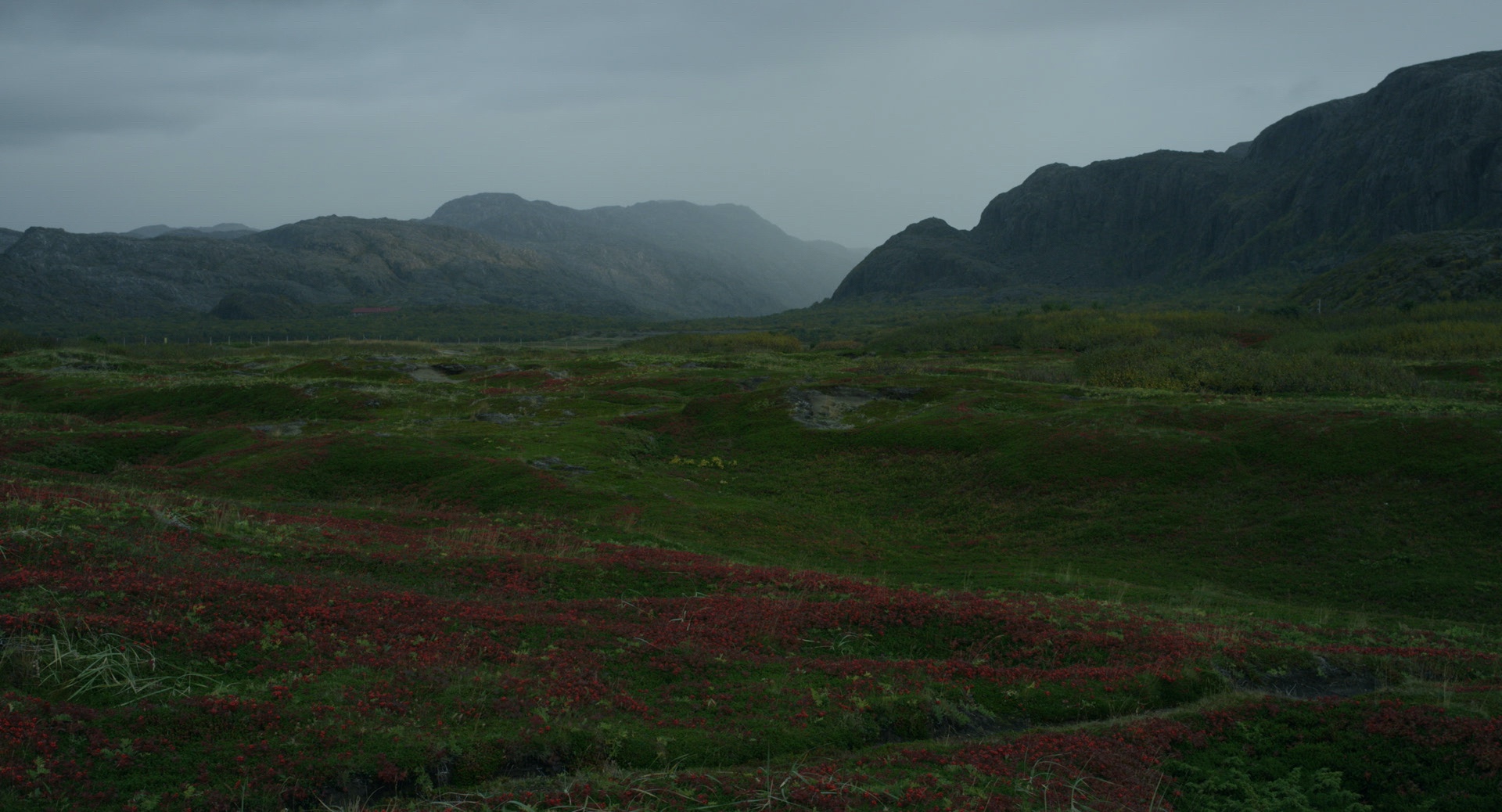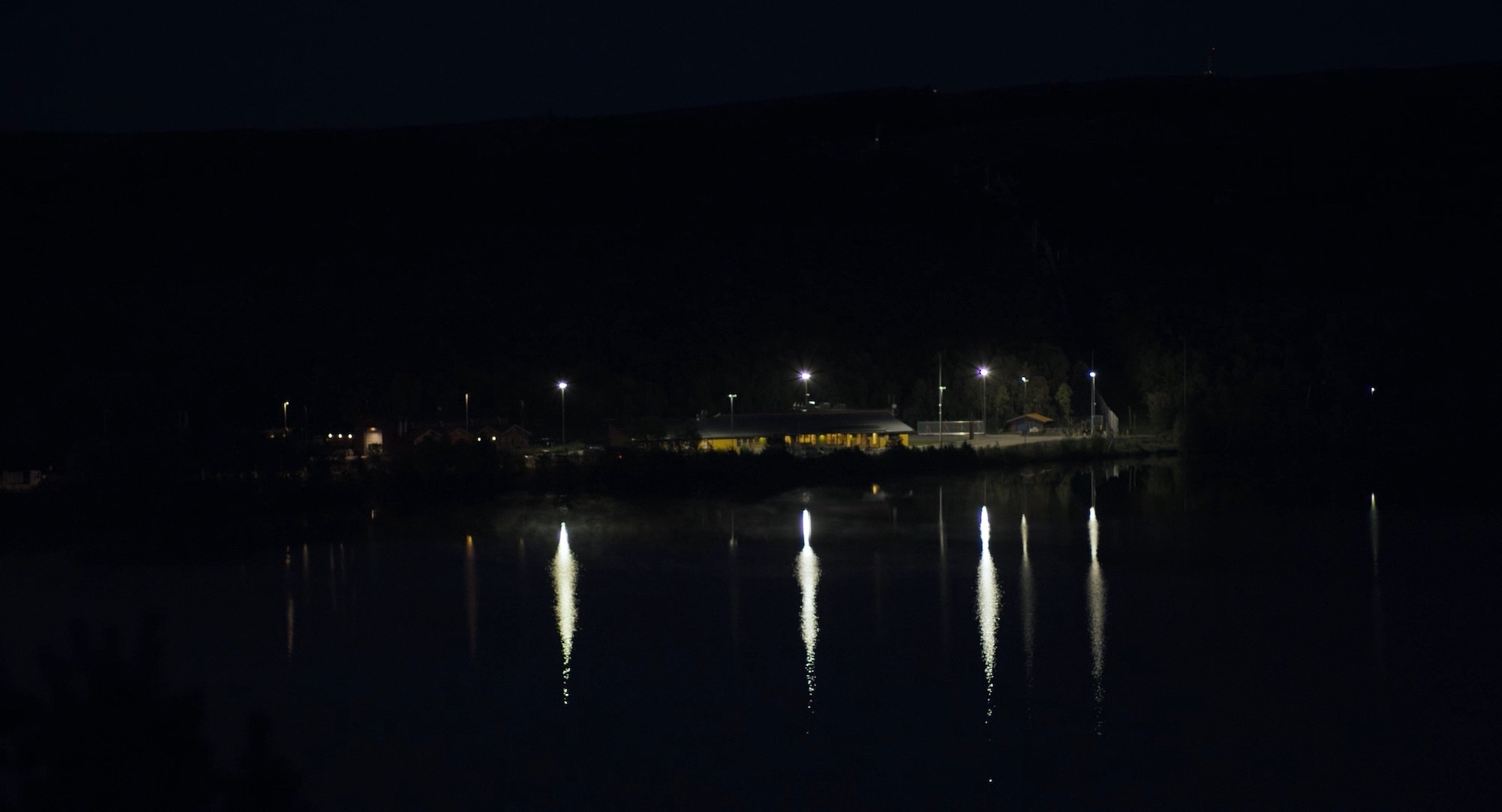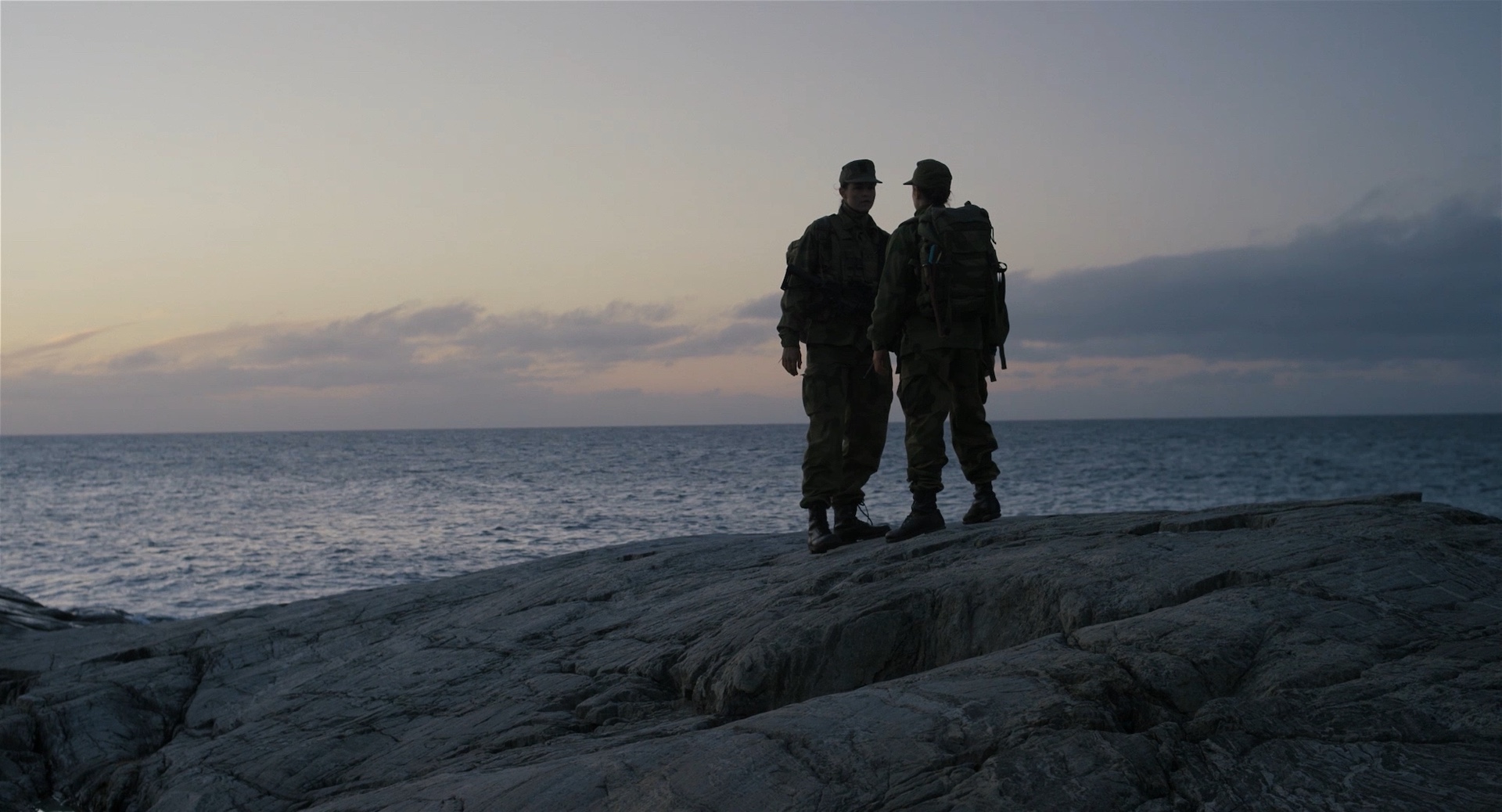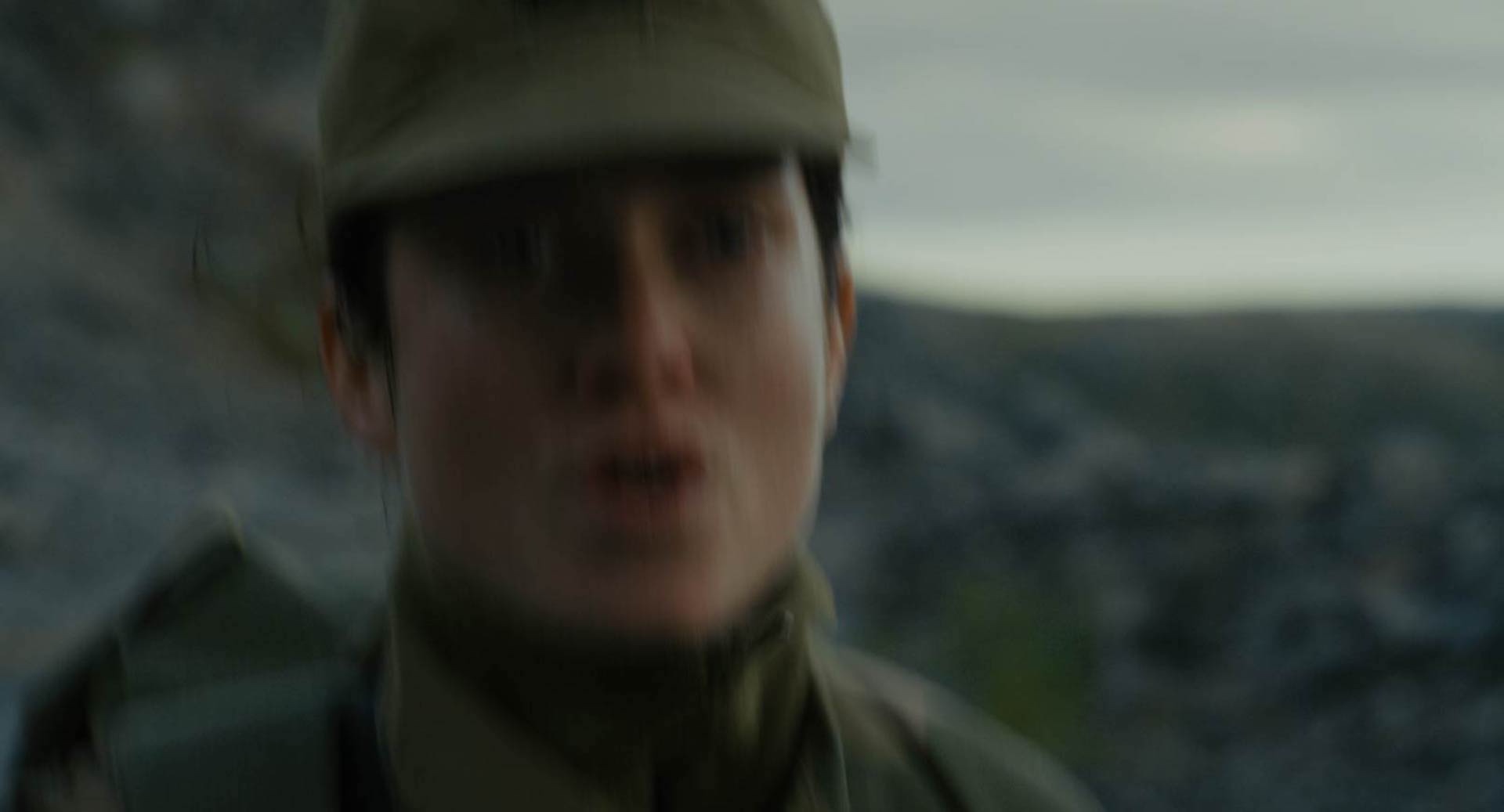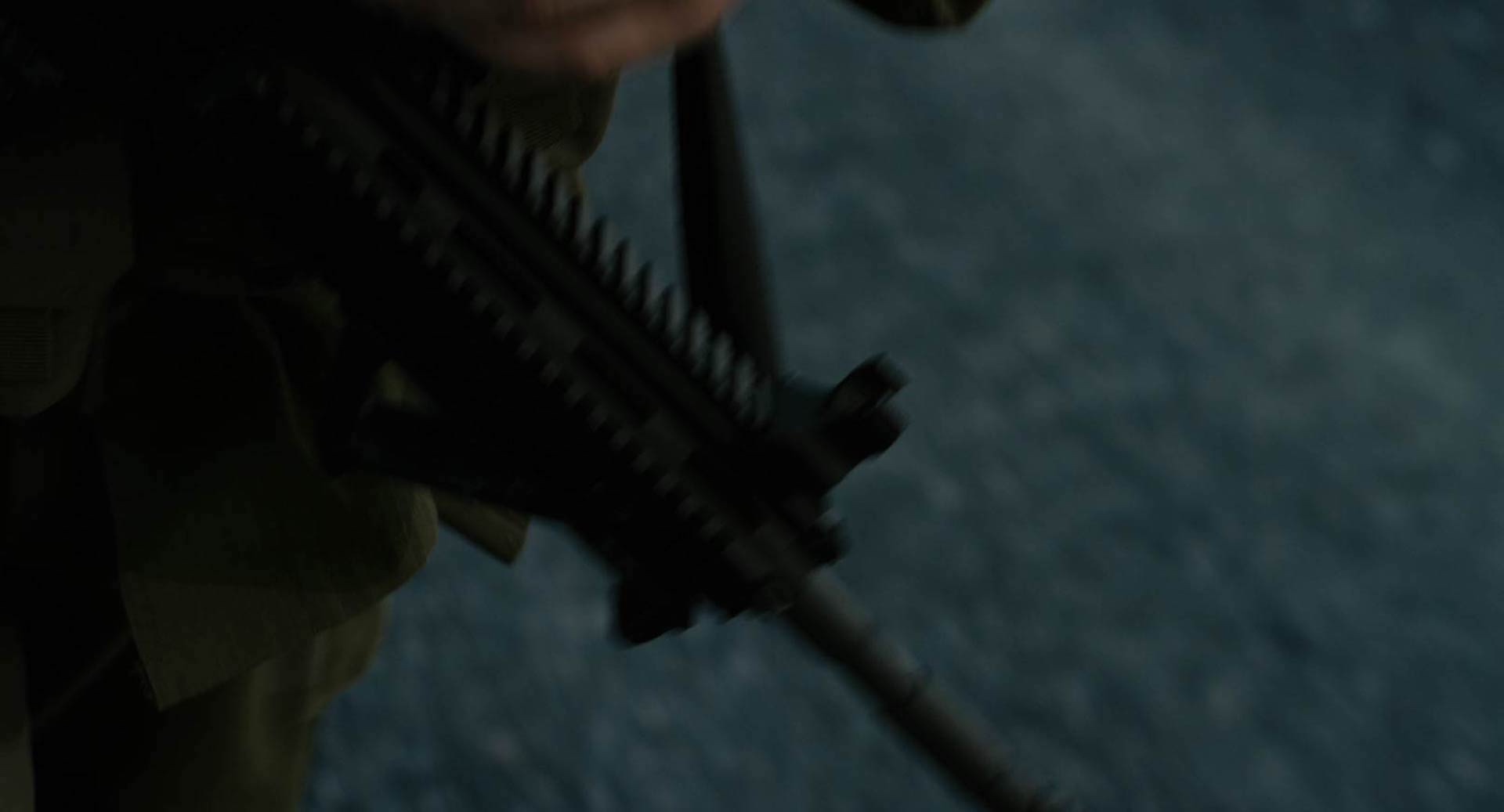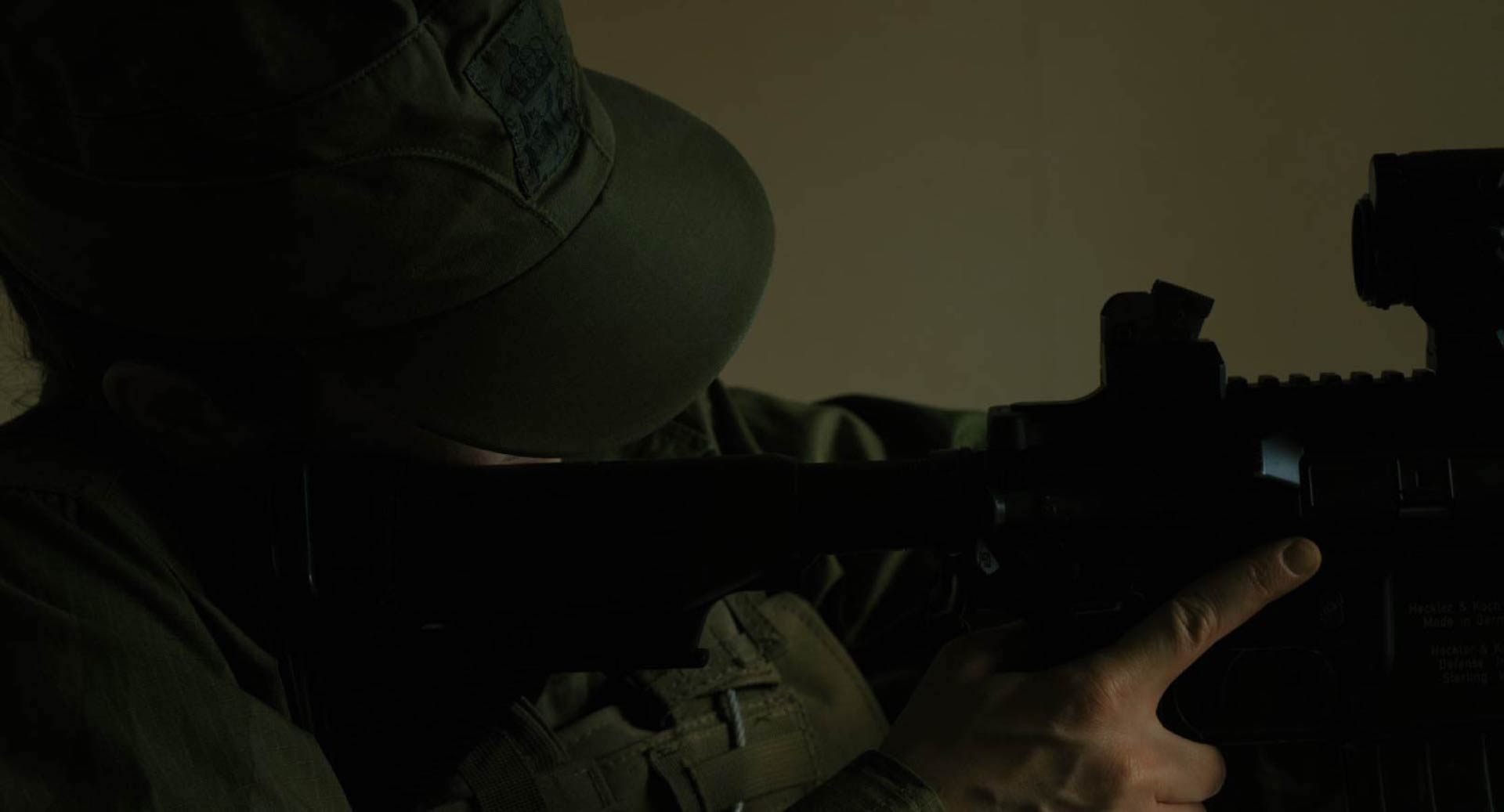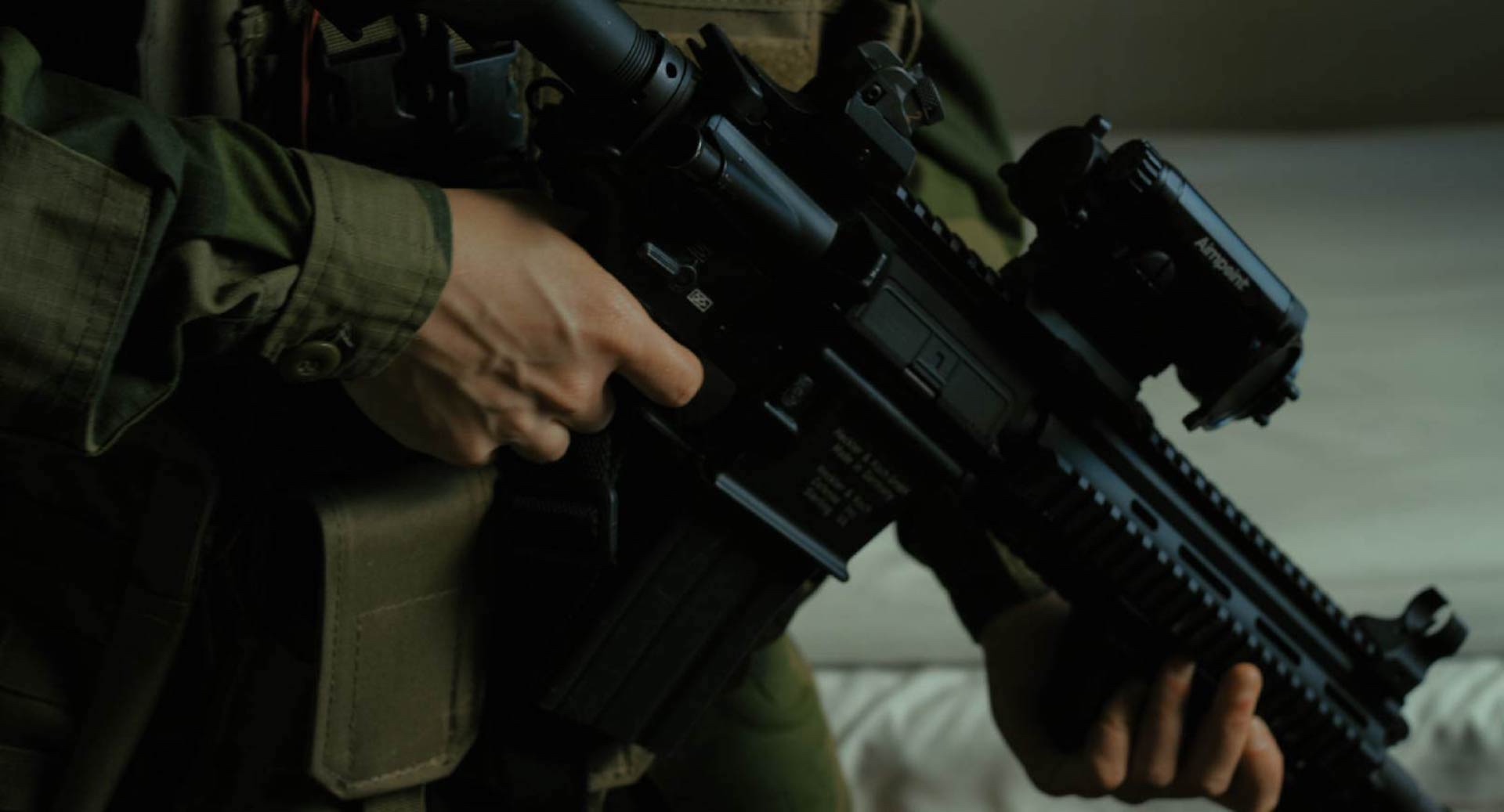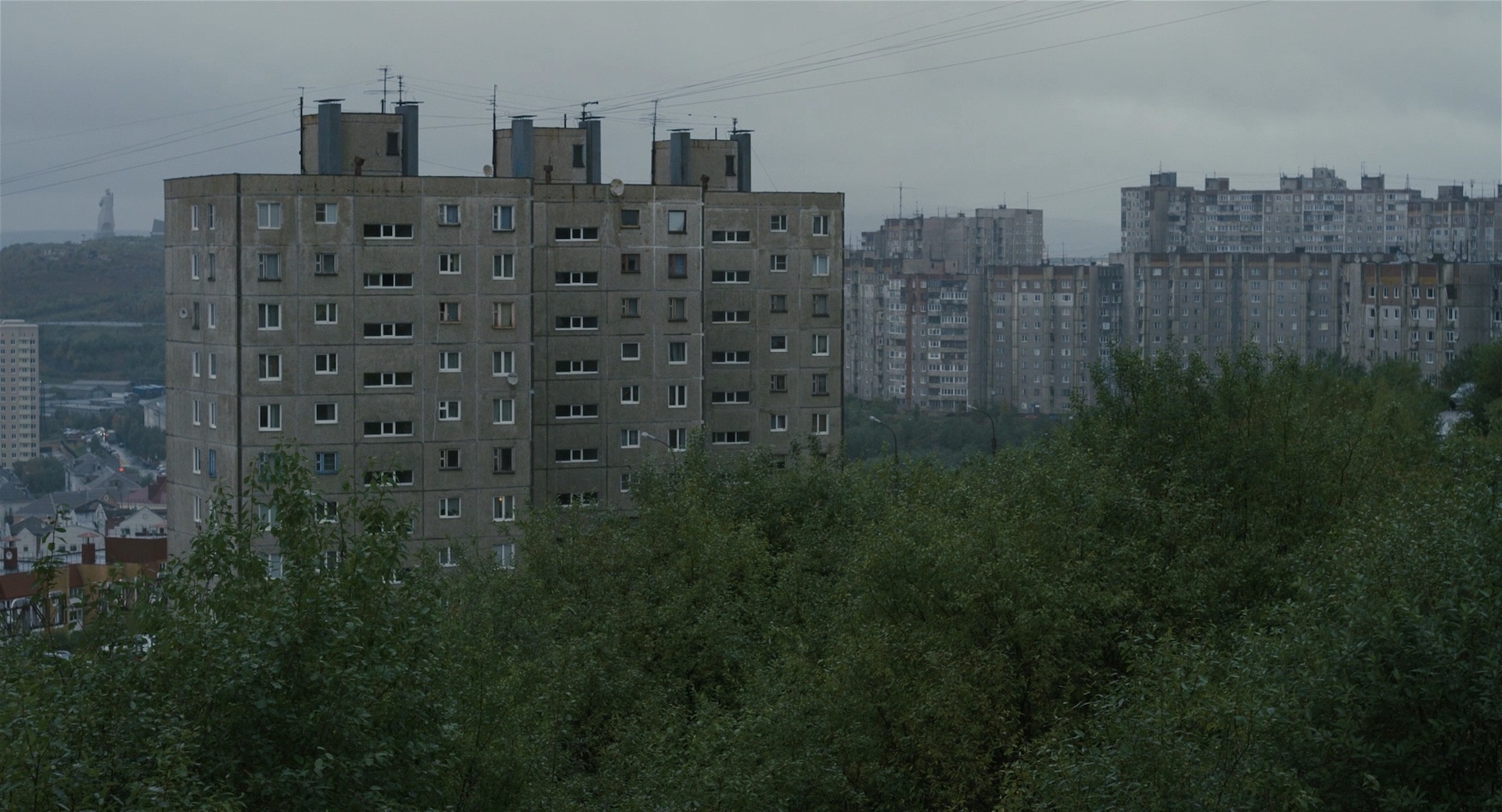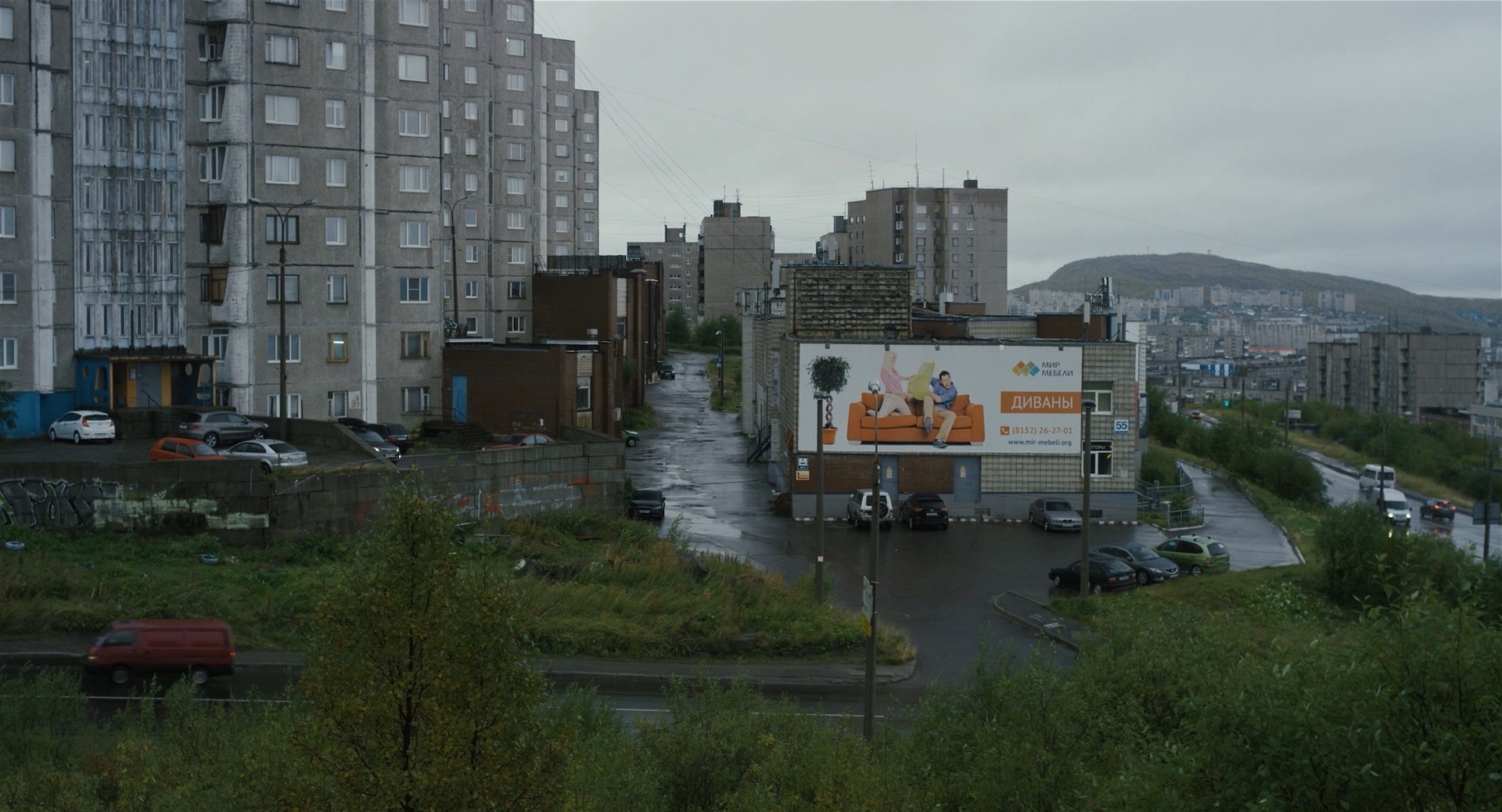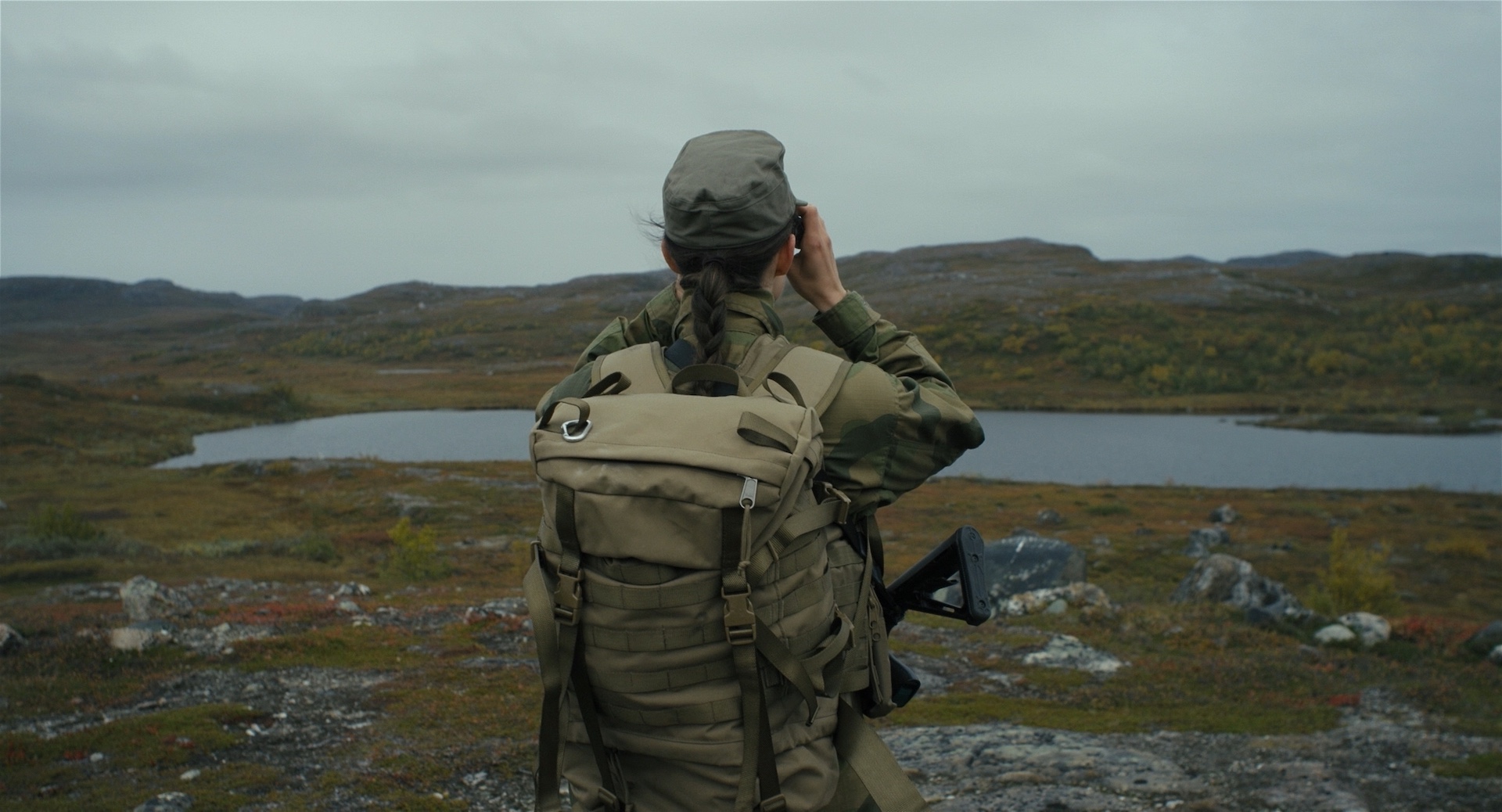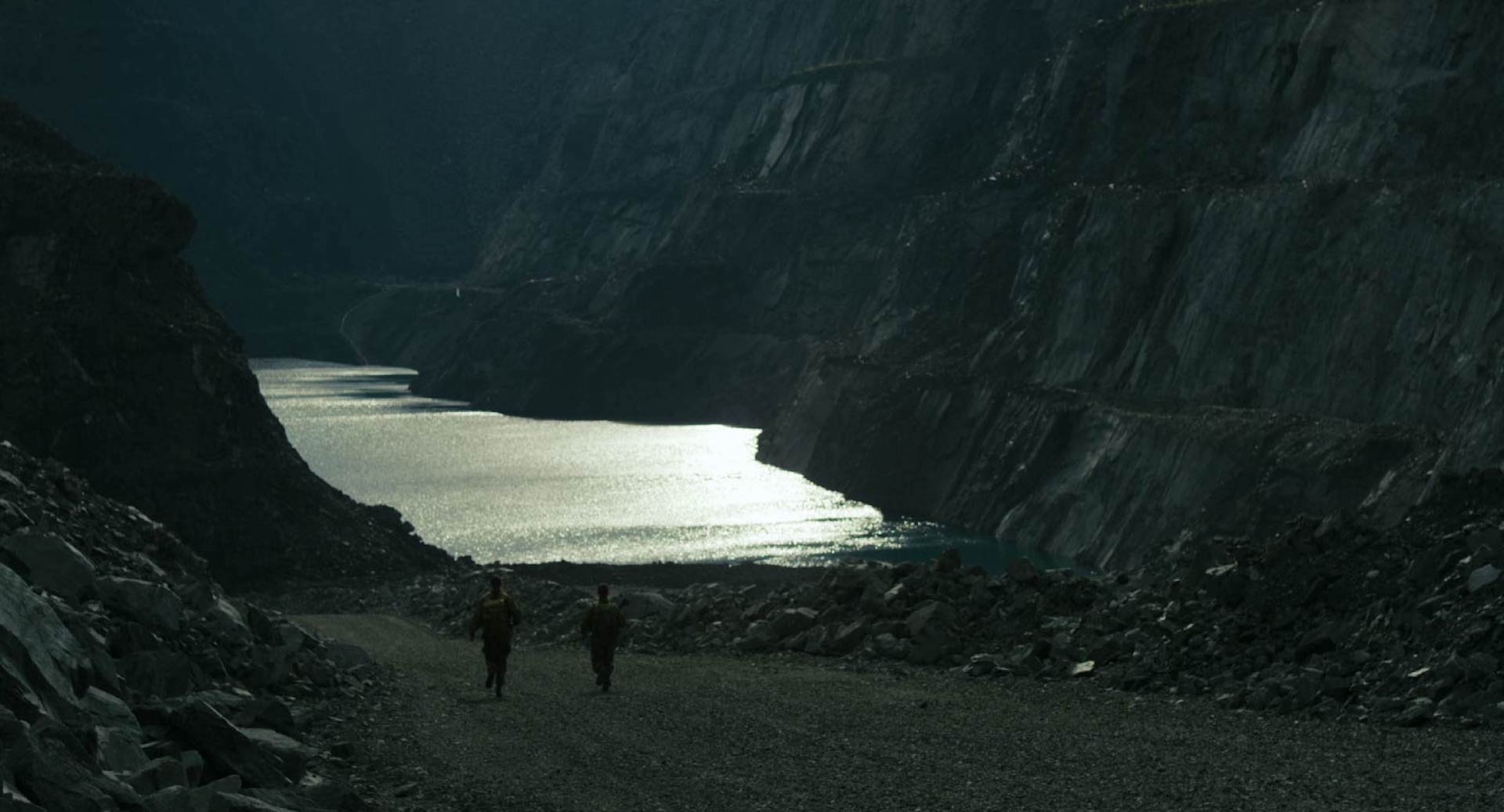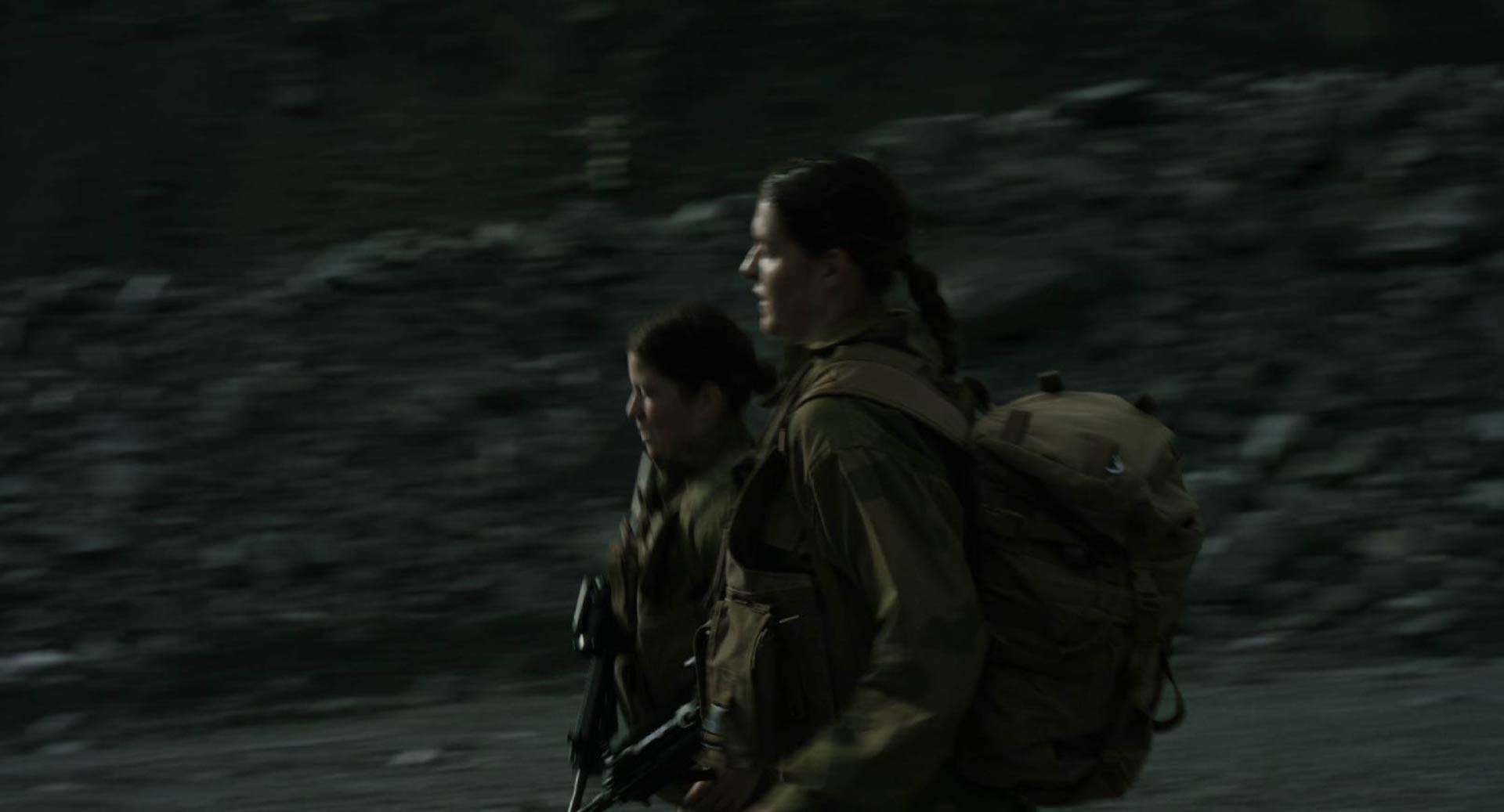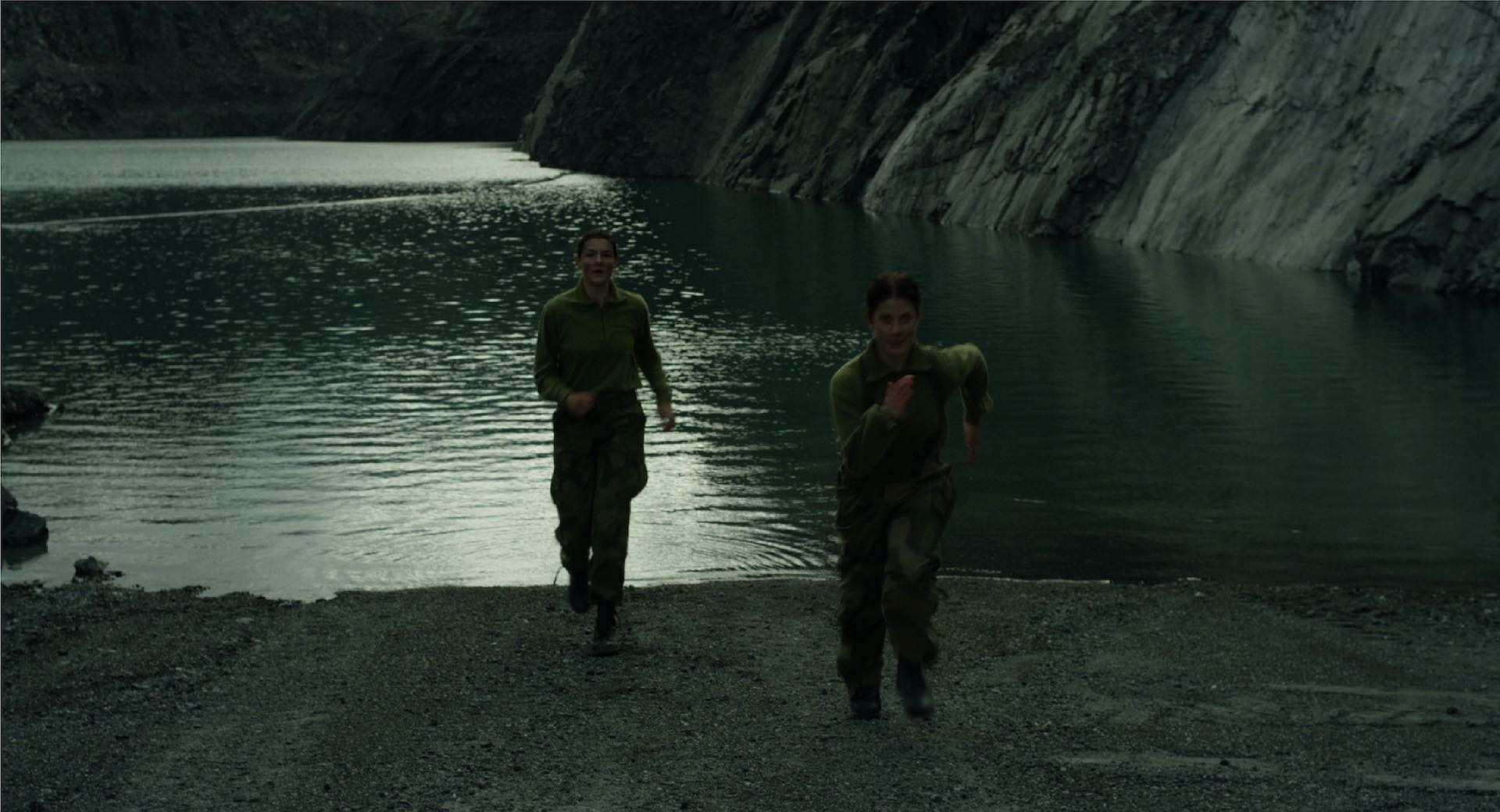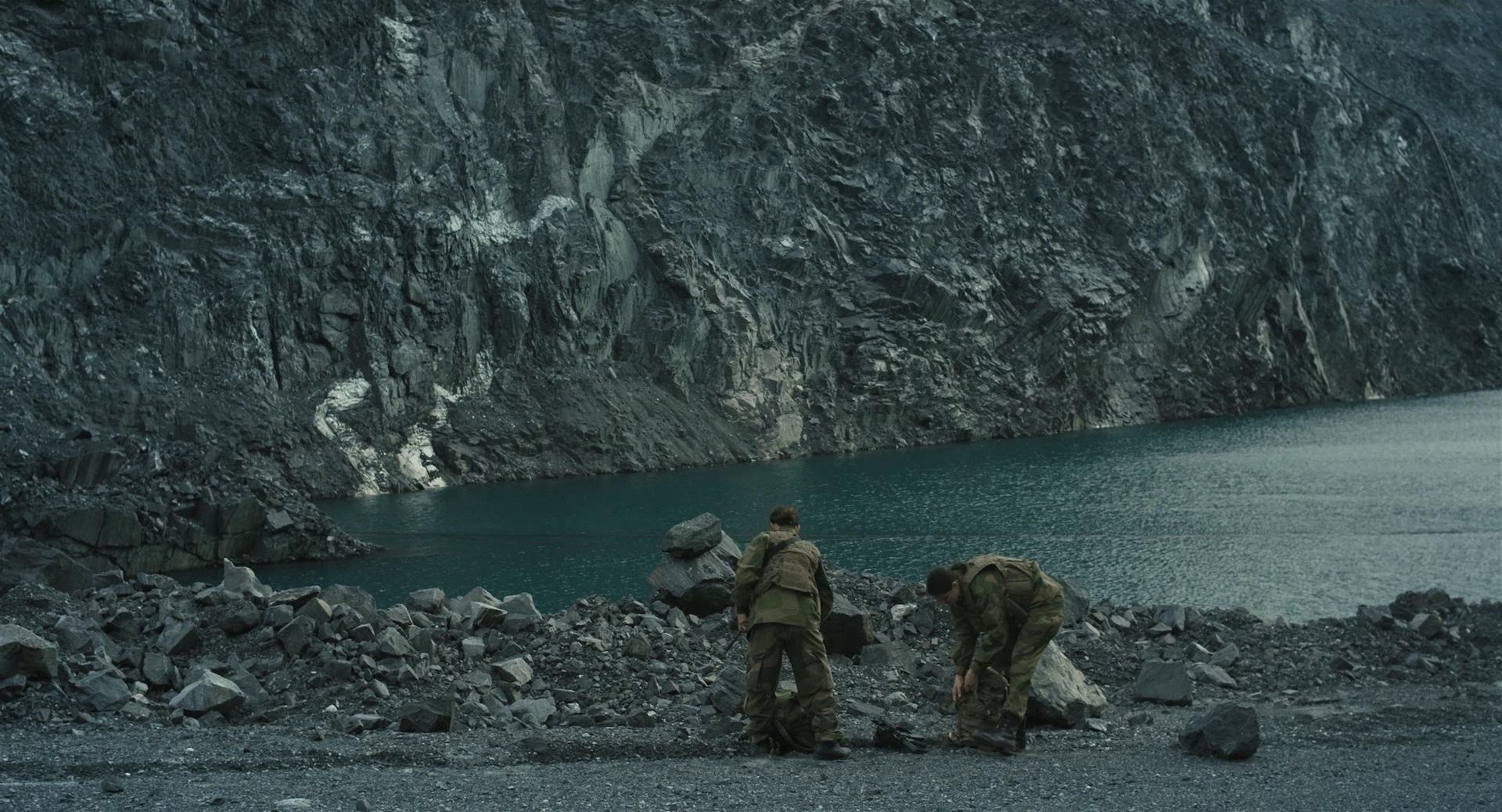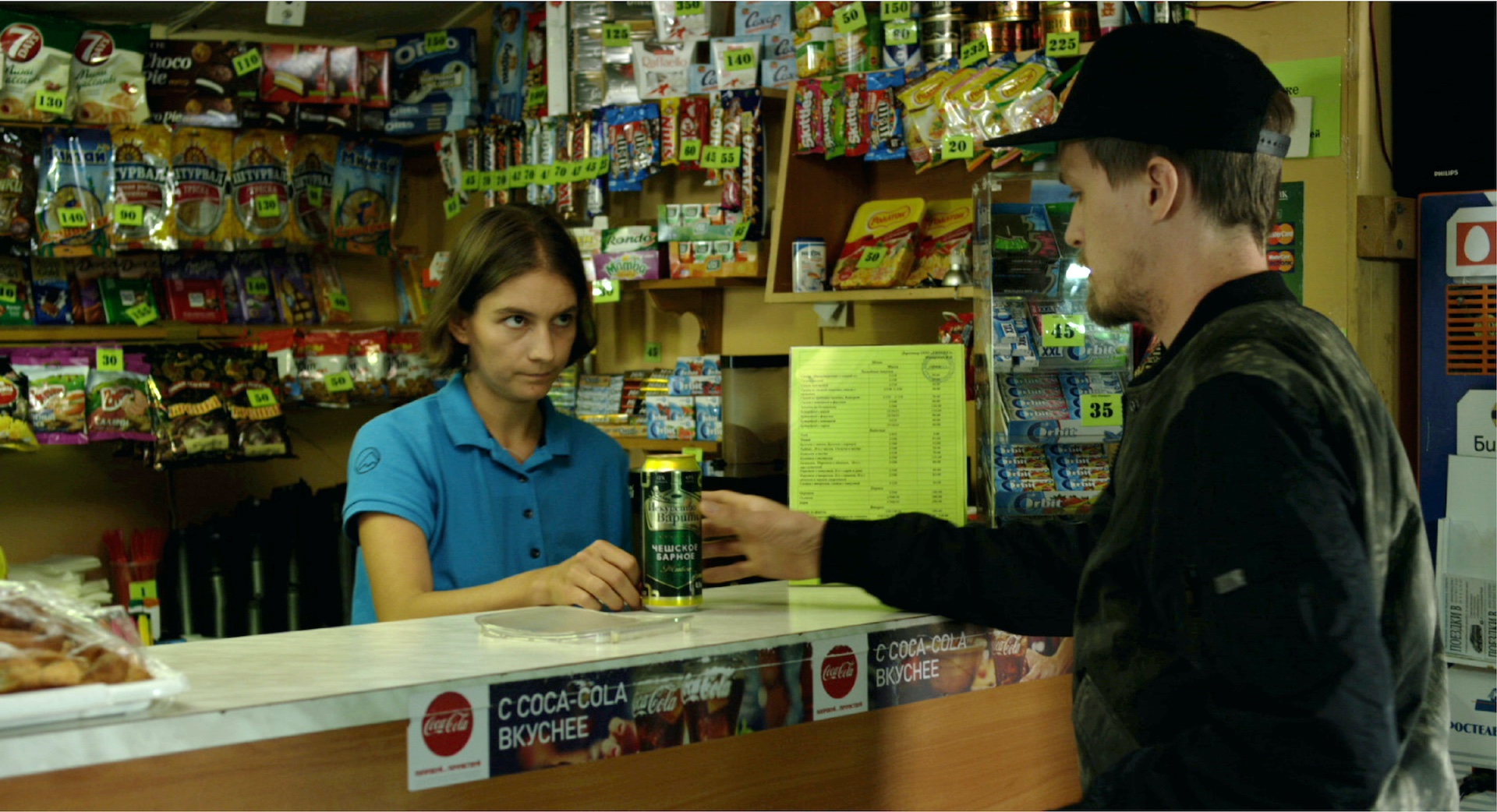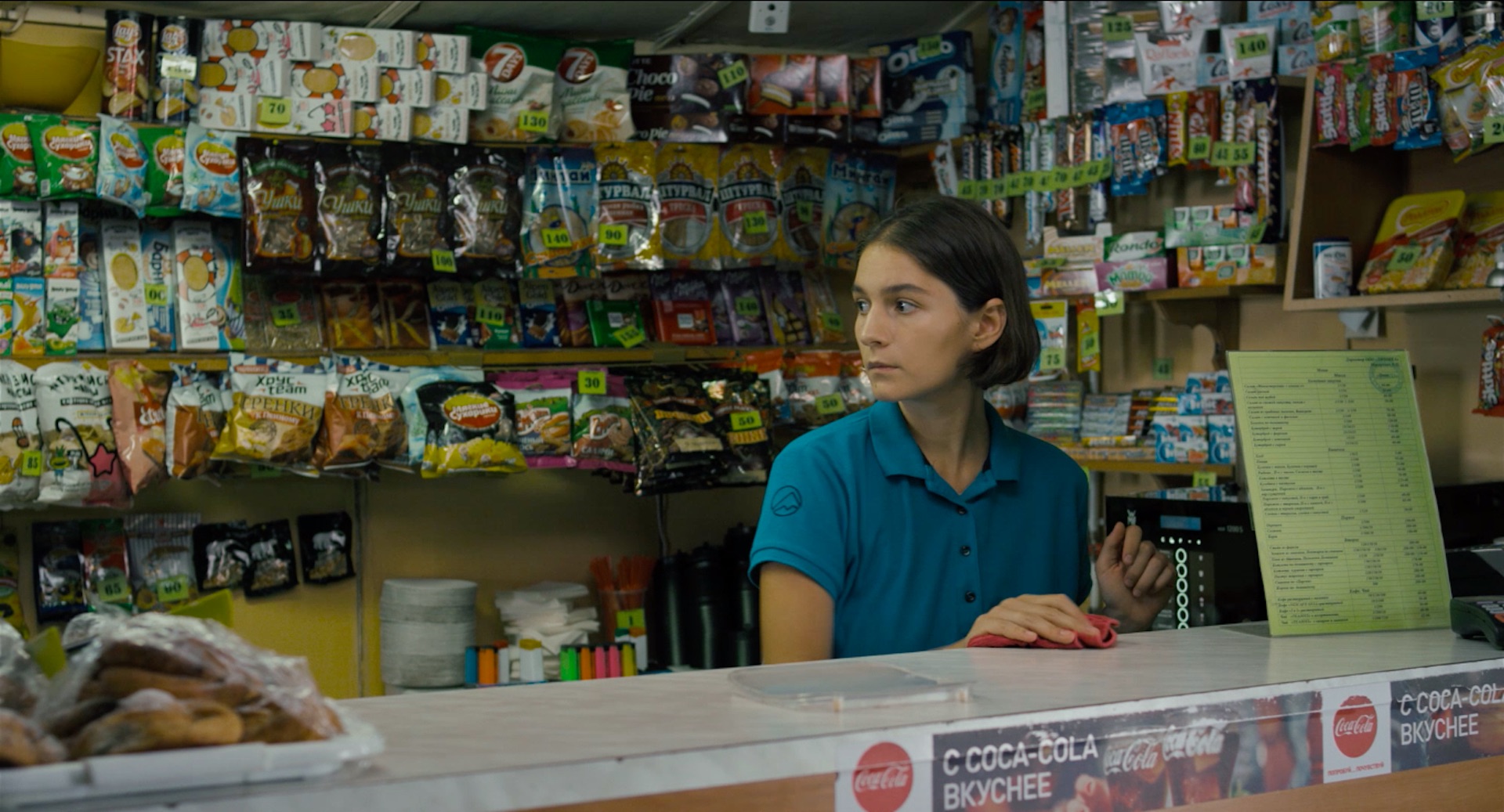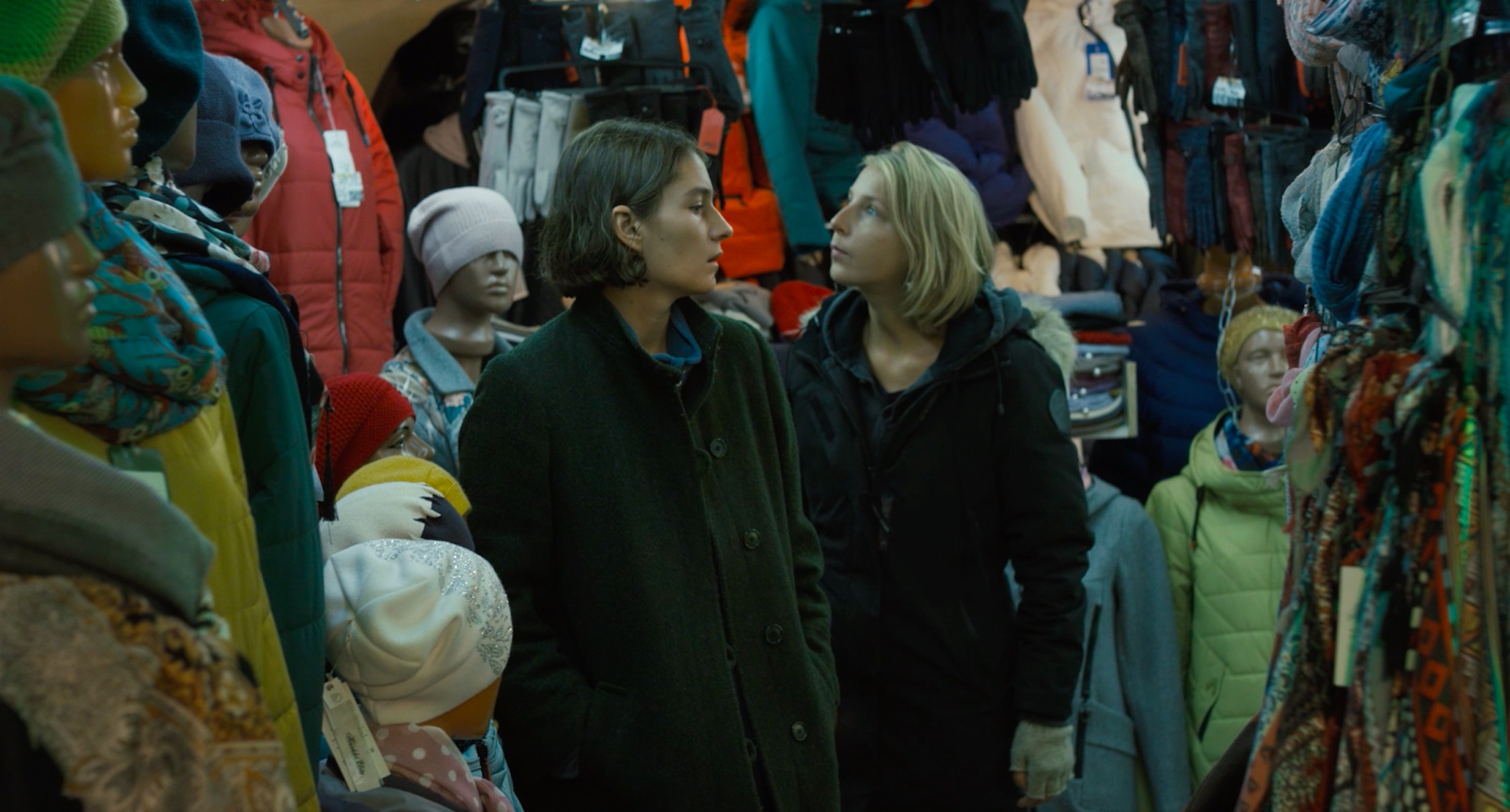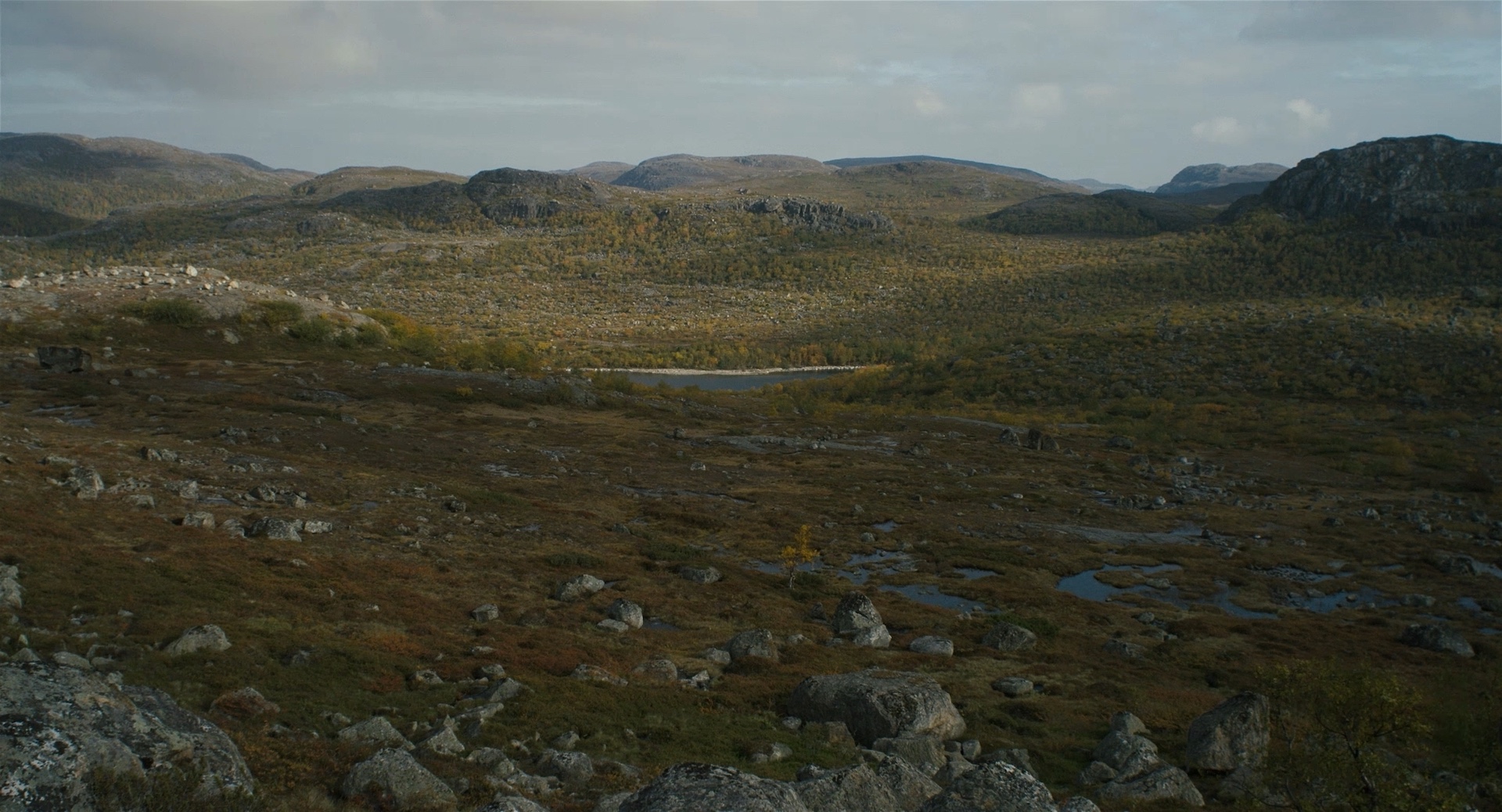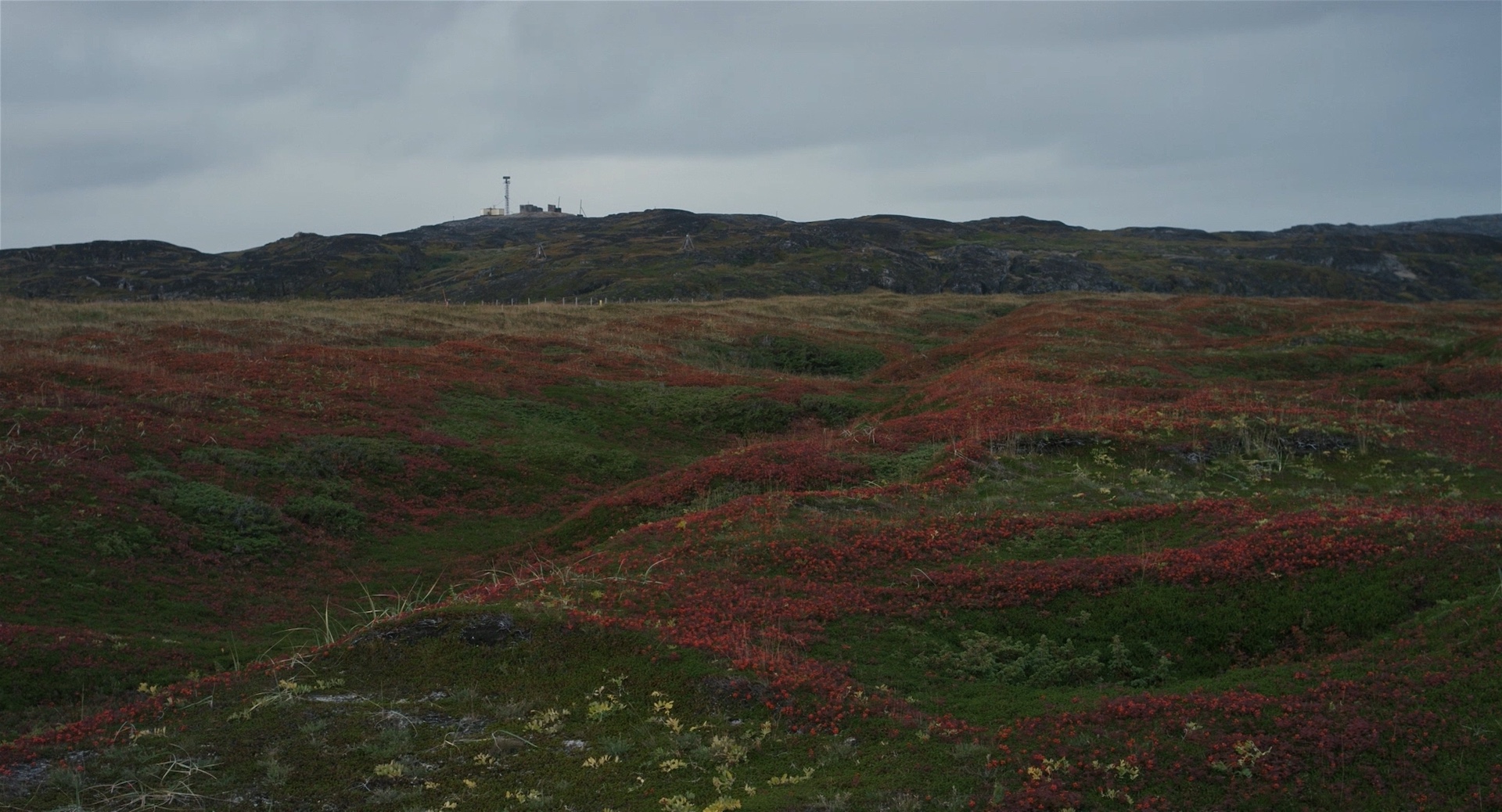Murmansk/Kirkenes
5K to 2K, 51 min, colour, 5.1 audio. 2017-18
As a documentary-fiction hybrid, Murmansk / Kirkenes engages with the contemporary situation of Europe in crisis from a political, economic and material perspective. Capturing moments from either side of Europe’s northernmost border with Russia, Murmansk / Kirkenes presents two parallel narratives, separated both geographically and politically.
Elements of the film shot in Norway follow two Norwegian female soldiers patrolling the border outside Kirkenes. This part of the film rests solely on physical movement and observation of the border and the terrain without dialogue. The soldiers search a landscape devoid of events, looked at through a necessary paranoid gaze as they scan for abnormalities. Though their closeness with the landscape grows throughout the film, the soldiers’ immersion in political division assimilates their bodies into state apparatus.
The Russian element is actor-driven, focusing on the work tasks and floating relationship between two female cafe workers in Titovka. Best known for being a frontline during the Second World War, Titovka is a stopping-place situated in a sparsely populated military zone between Murmansk and Kirkenes. Dialogue revolves around personal, everyday subjects; work life and working conditions, media and representations of reality, and non-normative desire. Conversations between the women also reflect the state’s ideological control over representation and its insistence on an edited version of history.
More:
The video material is divided into two main parts; one part primarily in a barracks town in a Russian military area, and another part on the Norwegian side along the border with Russia. The Norwegian side is represented in two short videos – one showing two soldiers training in the large open Sydvaranger mines at Bjørnevatn in Finnmark, and another part following a border ranger soldier patrolling the northernmost part of the Schengen border and the border between NATO and Russia at Grense Jakobselv, all the way up to where the border disappears into the sea.
In the first part with the training, the soldiers maintain themselves as state, political bodies, but they also do so in an striking but ambivalent landscape that is a large man-made wound in nature – an open mine where the top of the mountain has been blasted and dug away, leaving behind an expanding artificial lake. The damaged landscape has been a way to keep a population in the region, which is geopolitically important for the state of Norway.
The last Norwegian video thematizes a geopolitical and necessarily paranoid view of the landscape, which otherwise has few border markers. The soldier is a catalyst for that reading of the landscape. She looks and observes what is essentially a vast landscape, and the soldier and the uniform make us see the landscape in a context of international political relations and narratives. In the tradition of landscape painting or photography, both the landscape depicted and the body of a subject creates a reading that reflect the surronding society’s ideas of connection ot the landscape, to ownership, usage of land, nature, body and subjectivity.
While the two short videos from the Norwegian side are driven by physical labor, choreography, and landscape observation, the longer Russian part is character- and dialogue-driven. It is filmed mainly at Titovka, best known for being a frontline during the Second World War, Titovka consists of a few barracks, and is a stopping-place situated in the military zone encompassing the first kilometers over on the Russian side of the border. It has a 24-hour open café, in the military area that. Until a new main road was made between Murmansk and Kirkenes, Titokva was a place "everyone" stopped between Murmansk and Kirkenes. Locals who wanted lunch, military personnel who dropped by for a cola or a beer in the evening, tourists, students, diplomats, and prostitutes who wanted a coffee or something to eat, etc.
The video part from Titovka focuses on two main characters who are work colleagues who gradually become more bound to each other. Their dialogues revolve around rank, responsibility, the workplace, gender, customers, ambition, representation in media of nature and history. The relationship between them has a competitive, sometimes slapstick, but also a dependent and caring nature. While the action unfolds somewhat humorously, there is a military and state presence and threat throughout the video through the presence of military personnel and the dumbing media usage.
Installations:
Presented as part of architectural installation, Psychastenia 5 2019 at Momentum10 Biennal, Moss.
Presented as 3-channel video installation at KARST, Plymouth.
Watch the shorter three part installation versions on Vimeo - you will need a password from us:
Elements of the film shot in Norway follow two Norwegian female soldiers patrolling the border outside Kirkenes. This part of the film rests solely on physical movement and observation of the border and the terrain without dialogue. The soldiers search a landscape devoid of events, looked at through a necessary paranoid gaze as they scan for abnormalities. Though their closeness with the landscape grows throughout the film, the soldiers’ immersion in political division assimilates their bodies into state apparatus.
The Russian element is actor-driven, focusing on the work tasks and floating relationship between two female cafe workers in Titovka. Best known for being a frontline during the Second World War, Titovka is a stopping-place situated in a sparsely populated military zone between Murmansk and Kirkenes. Dialogue revolves around personal, everyday subjects; work life and working conditions, media and representations of reality, and non-normative desire. Conversations between the women also reflect the state’s ideological control over representation and its insistence on an edited version of history.
More:
The video material is divided into two main parts; one part primarily in a barracks town in a Russian military area, and another part on the Norwegian side along the border with Russia. The Norwegian side is represented in two short videos – one showing two soldiers training in the large open Sydvaranger mines at Bjørnevatn in Finnmark, and another part following a border ranger soldier patrolling the northernmost part of the Schengen border and the border between NATO and Russia at Grense Jakobselv, all the way up to where the border disappears into the sea.
In the first part with the training, the soldiers maintain themselves as state, political bodies, but they also do so in an striking but ambivalent landscape that is a large man-made wound in nature – an open mine where the top of the mountain has been blasted and dug away, leaving behind an expanding artificial lake. The damaged landscape has been a way to keep a population in the region, which is geopolitically important for the state of Norway.
The last Norwegian video thematizes a geopolitical and necessarily paranoid view of the landscape, which otherwise has few border markers. The soldier is a catalyst for that reading of the landscape. She looks and observes what is essentially a vast landscape, and the soldier and the uniform make us see the landscape in a context of international political relations and narratives. In the tradition of landscape painting or photography, both the landscape depicted and the body of a subject creates a reading that reflect the surronding society’s ideas of connection ot the landscape, to ownership, usage of land, nature, body and subjectivity.
While the two short videos from the Norwegian side are driven by physical labor, choreography, and landscape observation, the longer Russian part is character- and dialogue-driven. It is filmed mainly at Titovka, best known for being a frontline during the Second World War, Titovka consists of a few barracks, and is a stopping-place situated in the military zone encompassing the first kilometers over on the Russian side of the border. It has a 24-hour open café, in the military area that. Until a new main road was made between Murmansk and Kirkenes, Titokva was a place "everyone" stopped between Murmansk and Kirkenes. Locals who wanted lunch, military personnel who dropped by for a cola or a beer in the evening, tourists, students, diplomats, and prostitutes who wanted a coffee or something to eat, etc.
The video part from Titovka focuses on two main characters who are work colleagues who gradually become more bound to each other. Their dialogues revolve around rank, responsibility, the workplace, gender, customers, ambition, representation in media of nature and history. The relationship between them has a competitive, sometimes slapstick, but also a dependent and caring nature. While the action unfolds somewhat humorously, there is a military and state presence and threat throughout the video through the presence of military personnel and the dumbing media usage.
Installations:
Presented as part of architectural installation, Psychastenia 5 2019 at Momentum10 Biennal, Moss.
Presented as 3-channel video installation at KARST, Plymouth.
Watch the shorter three part installation versions on Vimeo - you will need a password from us:
Links
